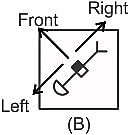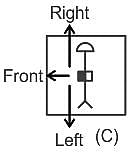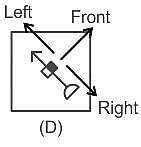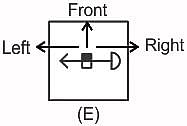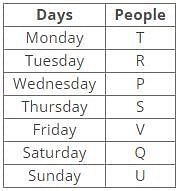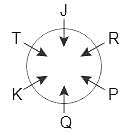Maths & Logical Reasoning Test - 3 - SSC CGL MCQ
30 Questions MCQ Test - Maths & Logical Reasoning Test - 3
A car covers the first one-fourth of a distance at 40 km/h, the second one-fourth at 50 km/h, the third one-fourth at 60 km/h. and covers the last one-fourth part with a speed of 70 km/h. What is the average speed (in km/h) of the car for the whole journey? (rounded off to two decimal places)
A car can cover 150 km at a certain time. If its speed is decreased by 5 km/h, the same car requires one hour extra time to cover the same distance. What is the speed of the car?
| 1 Crore+ students have signed up on EduRev. Have you? Download the App |
Study the given graph and answer the question that follows.
The graph shows data regarding number of boys and girls studying in class 5 in four different schools.
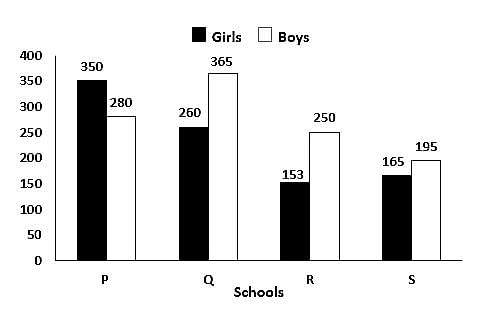
What is the difference between total number of boys studying in school P and Q together and the total number of girls in the same schools together?

What is the difference between total number of boys studying in school P and Q together and the total number of girls in the same schools together?
The angle of elevation of the top of a tower of height x metre from a point on the ground is found to be 60°. By going y metre away from that point, it becomes 30°. Which one of the following relations is correct?
(7 × 4) + (2 × 12) - ((24/8) + (121/11) × 2) = ?
Which portable Laptop Company has the maximum average selling price during 2011-2015?
If the total budget spent was Rs. 4.8 lakhs, how much (in Rs.) was spent on others and education together?
Two persons A and B invested Rs. 43,675 and Rs. 61,145 in a business respectively. They divided 33.33% of the total profit equally and the rest was distributed proportionately to their investments. If B got Rs. 8,472 more than A, what was the total profit (in Rs.) of the business?
Revenue from “Value added” is approximately what percentage of the revenue from “Service Tax”?
In ΔPQR, PS ⊥QR and QT ⊥ PR. PS and QT intersect each other at O. If QO = PR and ∠PRQ = 60°, what is the measure of ∠QPR?
Select the figure that will replace the question mark (?) in the following figure series.

In a certain code language, APPROACH is written as CHOAPRAP. How will COMPUTER be written as in the same language?
'Height' is related to 'Acrophobia' in the same way as 'Vomiting' is related to '_______'.
Given below is a question, followed by two arguments, I and II. You have to decide which of the given arguments, if any, is a strong argument, with respect to the question.
Question: Should advertisements be banned on television?
Argument I: Yes, advertisements are immoral.
Argument II: No, advertisements bring in revenue which helps reduce cost for viewers.The sequence of folding a piece of paper and the manner in which the folded paper is cut are shown in the following figures. How would this paper look when unfolded?

Choose the figure which is different from the rest.

Select the option in which the numbers are related in the same way as are the numbers of the following set.
(12, 14, 143)
If 73 × 69 × 43 = 185 and 41 × 53 × 68 = 162, then 11 × 31 × 71 = ?
Select the correct alternative to indicate the sequential order of the following terms as they appear in a dictionary.
1. Dreamlike
2. Dreamer
3. Dreamy
4. Dreamland
5. Dreamtime
Select the set in which the numbers are related in the same way as are the numbers of the following sets.
(NOTE: Operations should be performed on the whole numbers, without breaking down the numbers into its constituent digits. E.g., 13 – Operations on 13 such as adding/subtraction/multiplying etc. to 13 can be performed. Breaking down 13 into 1 and 3 and then performing mathematical operations on 1 and 3 is not allowed)
(33, 6, 54)
(22, 7, 30)
In the following question below are given some statements followed by some conclusions based on those statements Taking the given statements to be true even if they seem to be at variance from commonly known facts. Read all the conclusions and then decide which of the given conclusion logically follows the given statements.
Statements:
I. All Z are Y.
II. Some Y are B.
Conclusion:
I. Some B are not Z.
II. Some Y are not Z.
III. Some Z are Y.
Who among the one who visited Delhi on Wednesday?
If A stands for division; B stands for subtraction; C stands for addition, D stands for multiplication; which of the following is correct?
Which of the following expression is false, if the given expression is true?
T > S ≥ P > I ≤ H < U, L > W = V < S, P > O


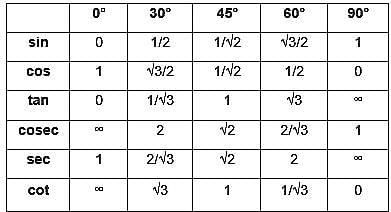
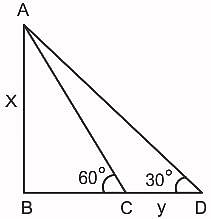
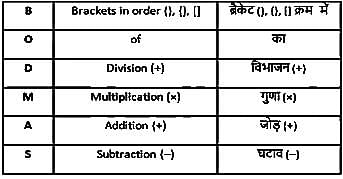




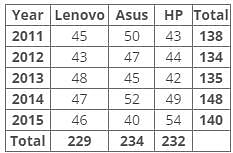





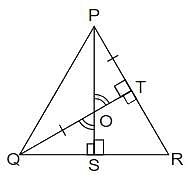



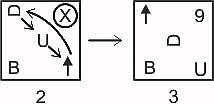
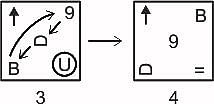
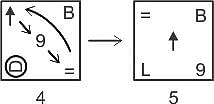
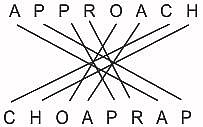
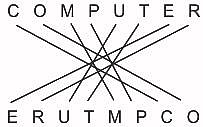
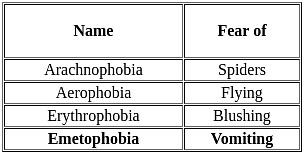

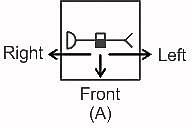 →
→ 